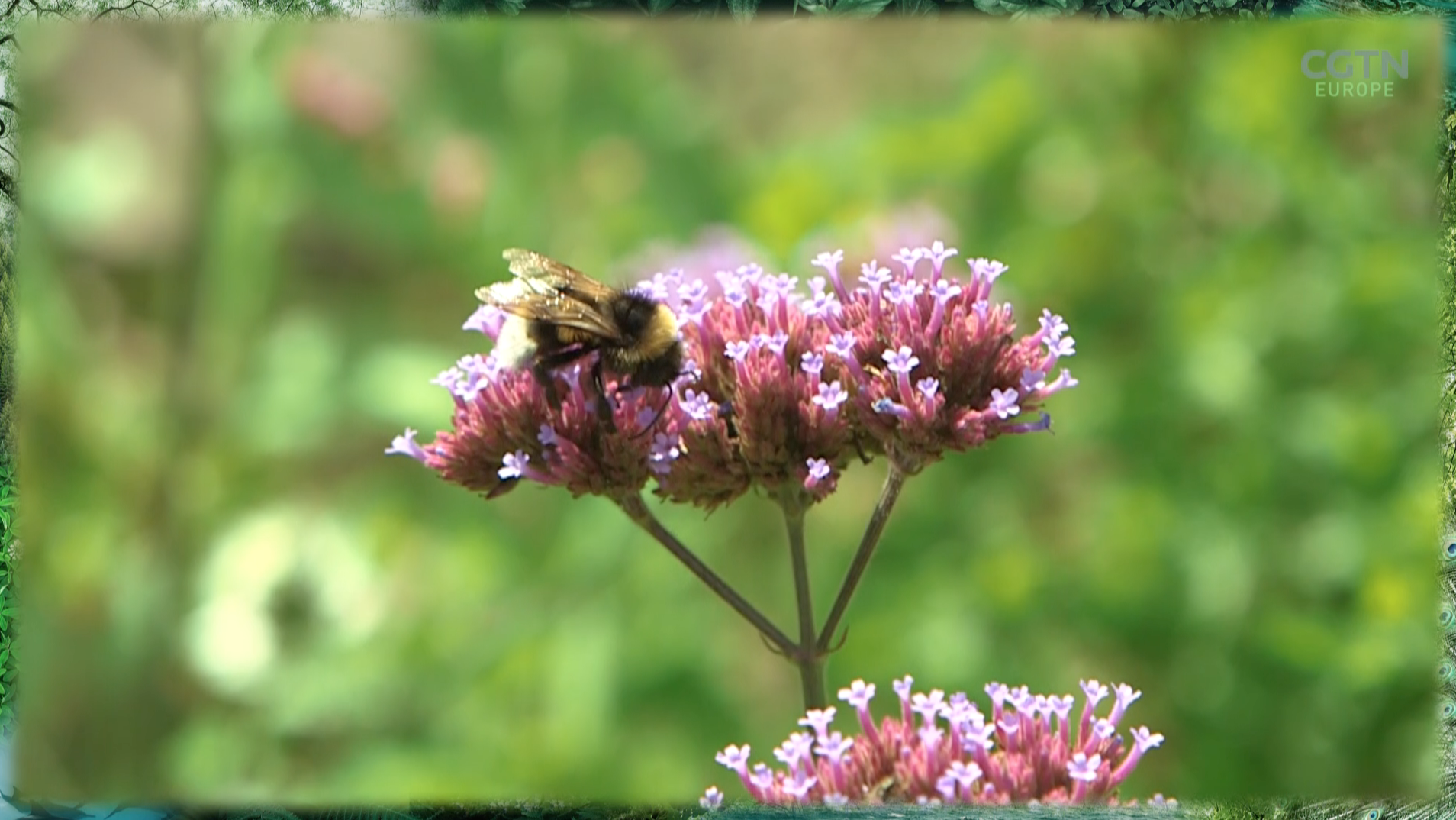03:22

Bees are an essential part of the world's biodiversity – and Germany's southern state of Bavaria is spearheading legislation that recognizes this.
Without pollination by bees, a third of our crops – such as fruit trees, berries and vegetables – would be at risk of disappearing, threatening much of the world's natural food supply.
That's why improving the natural habitat of bees is essential, says Martin Lell, a volunteer at Munich's ecological education center, where he attends to the 10 or so beehives there once a week.
"I think that people have noticed that the landscape has gotten poorer in the last few decades," he says, pulling out slates of honeycombs from a beehive with dozens of bees humming round him.
READ MORE:
Creating a bee highway
Using bees to kill fungus
Lell is also a member of three different environmental organizations that initiated a very successful "Save The Bees" campaign in Bavaria.
"The aim was to improve the Bavarian nature conservation law to include more nature protection, especially species protection, so that there is a greater variety of all species."
Scientists have been warning for years that the loss of meadows, climate change and pesticides have all hurt insect populations – so much so that, according to a global 2019 insect study, more than 40 percent of insect species are in decline and a third are endangered, due in large part to a loss of habitat.
Torsten Ellmann is president of Germany's Bee Keepers Association, the largest in Europe – and he argues that "very intensive agriculture" is disrupting our ecosystems. "We need open land for the development of the habitats of wild bees, so that the diversity of bees – and by that I mean both wild bees and honey bees – serves to ensure that we have a diversity of plants, and thus we have a great diversity in our cultural landscape."

Bees have many supporters. /CGTN
Bees have many supporters. /CGTN
This concern over the deterioration of Bavaria’s biodiversity led 1.75 million people, or 18 percent of the eligible population, to sign a petition to protect it.
The petition called for 20 percent of agricultural land in Bavaria to meet organic standards by 2025, and 30 percent by 2030; for 10 percent of green spaces to be turned into wildflower meadows; and for land and streams to be more rigorously protected from pesticides and fertilisers.
It also called for improved environmental education.
With support from 85 percent of Bavaria's Members of Parliament, the state premier Markus Soeder, wrote the petition straight into law "word for word."
Lell says this wasn't just a win for environmental activists, but also for Bavaria's conventional farmers who felt excluded from government environmental policies.
"They were very skeptical at first and were against it, because the referendum supports organic agriculture and the non-organic farmers feared they might lose subsidies," he says. "But in retrospect it turned out that these fears were exaggerated. The government has accommodated these farmers and new subsidies were added."
While it's still too early to judge the improvements in the bee population due to the work being done to improve their surroundings, Lell can at least assert that in Bavaria, "the percentage of organic farming has gone up. In 2018 it was 11 percent and now it is 12.5 percent today."
Permanently safeguarding and developing the diversity of flora and fauna species for the bees helps prevent further loss of biodiversity and is creating a buzz in many other states across Germany.

